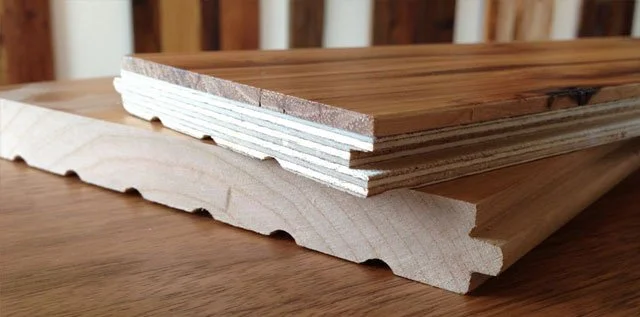Best Hardwood Floor Types
Choosing the right type of hardwood floor for your home can dramatically affect both its function and its style. With various wood species, styles, and finishes available, finding the perfect match requires understanding the basics of what’s available. This guide will help you navigate through the options to find the best hardwood floor for your needs.
Overview of Hardwood Species
Hardwood floors are made from a variety of wood species, each offering its unique color, grain, and hardness. Some of the most popular hardwood species include:
Oak: Known for its durability and resistance to wear, making it ideal for high-traffic areas.
Maple: Offers a lighter color with a fine, uniform texture.
Hickory: Highly durable and has a distinctive look with pronounced grain patterns.
Walnut: Known for its rich, dark tones and smooth grain.
Each species has different color variations and can be stained for additional color options, making it easier to match any interior design.
Hardwood Floors Types
When selecting hardwood floors, you will generally encounter two main types: solid hardwood and engineered hardwood.
Solid vs Engineered
Solid Hardwood: This is traditional hardwood, made from single pieces of wood. It can be refinished multiple times over its lifespan and is valued for its authenticity and longevity.
Engineered Hardwood: Consists of a top layer of hardwood bonded over a base of layered plywood. This construction provides enhanced stability and resistance to moisture, making it suitable for a wider range of environments, including basements.
Both types have their advantages, depending on your specific needs regarding installation, durability, and climate adaptability.
Hardness and Durability: Which is Better?
The debate between the durability of solid hardwood versus engineered hardwood often centers on their construction and the intended use of the space:
Solid Hardwood: Known for its durability over many years, solid hardwood can be sanded and refinished multiple times, making it a long-lasting choice for areas that may need refreshing over time. However, it can be susceptible to warping in humid or fluctuating climates.
Engineered Hardwood: Engineered hardwood is more stable in varying climates due to its multi-layer construction, which resists warping. While it cannot be sanded as many times as solid hardwood, it is still durable and can handle moisture better, making it ideal for use over concrete or in basements.
Choosing between solid and engineered hardwood should be based on the specific conditions and traffic expectations of your home.
Find Your Hardwood Floor at ProFloors & Cabinets
At ProFloors & Cabinets, we offer a wide selection of hardwood flooring options to fit any style and budget. Whether you are looking for the timeless elegance of solid hardwood or the versatile durability of engineered hardwood, our experts are here to help you make the best choice for your home. Visit us today to explore our collection and find the perfect hardwood floor for your space.

